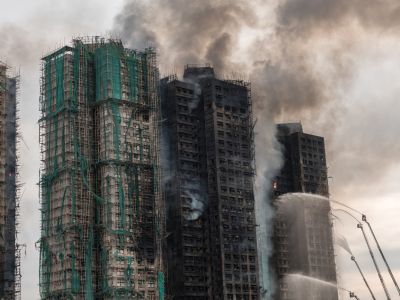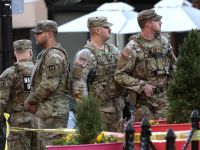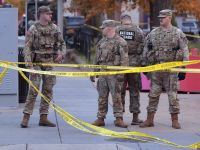Iraq reserves the right to end cooperation with U.N. weapons inspections if it deems Washington is manipulating them, the Iraqi inspections chief said Saturday.
In a letter Saturday, Baghdad pledged to act "professionally" if U.N. weapons inspectors return to the country and gain access to Saddam Hussein's palaces and other sites.
In the letter, sent to the Vienna headquarters of the International Atomic Energy Agency, Saddam adviser Gen. Amir al-Sadi said Baghdad sees no obstacles to a resumption of the search for weapons of mass destruction in Iraq, IAEA spokesman Mark Gwozdecky told The Associated Press in Vienna.
That letter came a day after another letter from al-Sadi, this time to U.N. weapons inspectors, appeared to ignore details of agreements hammered out with the inspectors on their eventual return.
Asked if Iraq reserves the right to again revoke cooperation with inspectors, Baghad's inspections chief Amin told AP: "Of course." "We gave commitments to cooperate, if they said they will follow scientific and logical measures for inspections, and will not misuse them for spying, collecting information," Amin said.
"If they will follow scientific measures, and they will take measures from the United Nations and not the United States, they should come on the date," he said.
In Washington, the State Department expressed skepticism at the latest letter. "Iraq continues to want to play word games, not comply. They will continue to make contradictory promises, and then choose the version of most tactical benefit at any given moment," spokeswoman Jo-Anne Prokopowicz said Saturday.
"The world is done playing the Iraqi game of denial, deception and obfuscation. The Security Council needs to act to pass an effective new resolution that leads to Iraqi disarmament," an administration official conveyed.
On his part, Iraqi Deputy Prime Minister Tareq Aziz warned that the United States would target other Arab states should it invades Iraq. "Iraq is the first target," he said in an interview with Lebanese satellite television. "All neighbouring countries will be divided afterwards."
Countries at risk, said Aziz, included "Saudi Arabia, Syria, Lebanon and Jordan," which he said could become a de facto home for Palestinians expelled from the West Bank. (Albawaba.com)
© 2002 Al Bawaba (www.albawaba.com)









